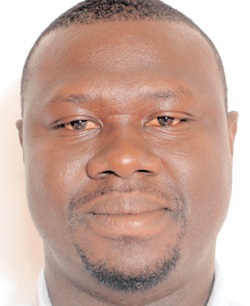
The West African Senior School Certificate Examination (WASSCE) has long been upheld as the gold standard for assessing the academic performance of Senior High School (SHS) students in Ghana and four other West African countries.
However, I believe, after 32 years of operating the SSCE/WASSCE as standard tests for Senior Secondary/High School students, it is about time education stakeholders engage in a bold reformative conversation on high school assessment and certification, in a manner that gears towards improving the rigour and creditability of our examinations and certificates.
The new basic and SHS curriculum currently being finalised is built on the concept of differentiated learning, in timely response to the new global dynamics in education and pedagogy and in producing industry-relevant graduates.
However, standardised testing, as exemplified by the WASSCE, where every learner, regardless of the teaching and learning resources (un)available to them, or their peculiar learning needs, or access to (or lack thereof) of electricity, or socio-economic background are all assumed to have learnt and acquired the same set of skills, hence assessed with the same set of questions, time frame/duration, invigilation and supervision, marking scheme and benchmarks.
This ‘generic’ standardised assessment stands in direct opposition to differentiated learning—a pedagogy that recognises and accommodates the diverse needs, abilities, and interests of students, which is the focus of the new curriculum.
Basically, the question is, if we agree that learners learn differently and so teaching and learning must be differentiated, then why give standardised tests? I, therefore, argue that the WASSCE, in its current form, defeats the purpose of differentiated learning and should be replaced with a termly accumulation of Grade Point Average (GPA).
I believe such a shift would offer a more equitable, comprehensive, and meaningful approach to assessment while addressing the social, political, academic and economic flaws inherent in the current ‘one-size-fits-all’ WASSCE system.
Differentiated learning acknowledges that students are unique individuals with varying learning styles, paces, and capabilities. It is a teaching philosophy, which has emerged rigorous in recent times, seeking to adapt content delivery and assessment methods to suit individual needs, ensuring every learner has an opportunity to succeed.
Standardised tests like the WASSCE, however, contradict this principle by imposing a rigid, one-size-fits-all assessment model for all learners across board. The WASSCE assumes uniformity among learners, disregarding their individual differences and marginalising those who do not fit the conventional academic mold. The result is an inequitable system that prioritises conformity over creativity and rote memorisation over critical thinking.
One of the primary flaws I have observed with the WASSCE is its narrow focus on a limited set of measurable skills and competencies in learners, particularly those that can be easily tested under time constraints. The examination heavily emphasises memorisation and recall, leaving little room for assessing skills such as creativity, problem-solving, and collaboration—skills that are essential for success in the 21st century.
I remember faintly that around 2019 or so, West African Examinations Council (WAEC) revealed that over 70% of candidates struggled with questions requiring higher-order thinking. This highlights the inadequacy of the WASSCE in capturing the full spectrum of student abilities and in ensuring meaningful learning experiences.
By contrast, a GPA-based system would evaluate students’ performance across multiple dimensions and over an extended period (throughout the 3 years of SHS), providing a more accurate and holistic picture of learner’s growth and achievements.
Another critical limitation of the WASSCE is its inability to measure the comprehensive outcomes of three years of SHS education in a single, high-stakes examination. Education is a multi-dimensional process encompassing cognitive, emotional, and social development, none of which can be effectively captured in a two-hour sit-down test. Compressing three years of learning into a single high stakes exam trivialises the educational journey, disadvantaging students who may excel in practical applications, project-based learning, or continuous assessments.
A GPA system, on the other hand, would assess students’ progress term by term, allowing for a more nuanced and equitable evaluation of their skills and knowledge.
Besides, I personally believe the ‘do-or-die stakes’ attached to the WASSCE is artificially high, often unwarranted. WASSCE is not a justify your inclusion exams to be selected for a limited job slot or scholarship. It is just an exit examination- taken as one leaves school. Why make it high-stakes then? What is really at stake here?
SHS leavers do not require a high-stakes examination to exit school; they simply need a certificate as evidence of completion and competence. Unlike some professional certification exams, which validate specific job-related competencies, or even the BECE which is used for placements, the WASSCE does not serve a similar purpose.
Its high-stakes nature creates undue pressure on students, teachers, headteachers and parents alike, foisting a “do-or-die” mentality that prioritises examination success over genuine learning.
No wonder examination malpractice is at an all-time high. A termly GPA system would distribute the weight of assessment across multiple terms, reducing the stakes of any single evaluation and ensuring a relatively healthier and more sustainable learning environment, where the focus will be on learning, not examination.
The financial implications of the WASSCE also warrant scrutiny. The government spends approximately 200 million Ghanaian cedis annually to administer the examination. This is a significant expenditure that yields limited benefits, especially when more cost-effective alternatives can be explored.
By abolishing the WASSCE and adopting a GPA-based system, these funds could be redirected towards other critical areas of education, such as improving infrastructure, teacher training, and access to learning resources. This reallocation would ensure a more equitable and impactful use of resources, benefiting all students rather than perpetuating an outdated assessment model.
Another major concern is the politicisation of the WASSCE results, which undermines the credibility of the examination. The performance of students in the WASSCE is often used as a political tool, with governments taking credit for successes or deflecting blame for failures.
In recent times, WAEC takes unnecessary interest comparing results of different regimes just to tell under whose regime learners perform/ed better. Even when there are clear indications that the quality of education is declining, the discussion is quickly drifted to WASSCE performance, as if it is any true measure of quality education.
Due to the pressure on governments to outperform preceding regimes, politicians are perceived to go every length to make sure the learners pass, even if artificially. It is perceived that the marks are sometimes manipulated, exaggerated, and even, certain malpractices are overlooked all to ensure the learners come out with what seems to be flying colours.
There are even instances where the former president, Akufo-Addo, admonished SHS students to pass the WASSCE just to ‘shame’ critics of free SHS. This trend shifts the focus of education from genuine learning and development to superficial metrics that serve political agendas.
A GPA-based system would help depoliticise student assessment by emphasising long-term learning outcomes over short-term political gains, allowing education to fulfil its true purpose of personal and societal development.
There is no doubt that standardised tests like the WASSCE also exacerbate educational inequities, disproportionately disadvantaging students from underprivileged backgrounds. Socioeconomic disparities often translate into unequal access to resources such as quality teaching, textbooks, and private tutoring, all of which significantly influence performance in high-stakes exams.
I remember in 2022, the Ghana Education Service (GES) indicated that students in urban areas, where resources are more readily available, outperformed their rural counterparts by an average of 15 percentage points across core subjects. By contrast, a continuous assessment model based on GPA would level the playing field by evaluating students’ progress over time and in diverse contexts, rather than relying on a single examination that favours the privileged.
There are evidences to support the efficacy of GPA-based systems in promoting student engagement and achievement. Countries like Finland and Sweden, which have adopted continuous assessment models, consistently outperform their peers on international benchmarks such as the Programme for International Student Assessment (PISA).
These systems emphasise formative assessment, collaborative learning, and the holistic development of students, all of which are incompatible with the high-stakes nature of standardised tests. Finland, for instance, abolished standardised testing for students below the age of 16 and has achieved remarkable success in fostering educational equity and excellence, with over 90% of its students completing upper secondary education.
Indeed, the GPA-based systems might also have its downsides as concerns are often raised about its potential subjectivity and grade inflation. However, these challenges can be mitigated through proper coordination and moderation processes.
For instance, teacher-assigned grades can be calibrated using peer reviews (from school, district or regional assessment coordinators) to ensure consistency and fairness. Additionally, the adoption of digital assessment tools and analytics can enhance the reliability and transparency of GPA systems, as demonstrated by successful implementations in countries like Singapore and Australia.
These measures would not only address concerns about subjectivity but also enhance the credibility of the assessment process.
Beyond these practical considerations, replacing the WASSCE with a GPA-based system aligns with the broader goals of education in the 21st century. Universities and employers increasingly value skills such as adaptability, collaboration, communication, team work, and critical thinking, which are often overlooked in standardised tests.
A continuous assessment model encourages the development of these competencies by promoting active participation, self-regulation, and critical reflection. For example, project-based assessments and class presentations, which are integral to GPA systems, provide students with opportunities to apply their knowledge to real-world problems and communicate their findings, ensuring transferable skills that are essential for success in diverse contexts.
I end by indicating that the 32-year-old ‘one-off’ end of school exams (SSCE/WASSCE) is an outdated and ineffective assessment model that undermines the principles of differentiated learning and fails to meet the learning needs of students, educators, and society.
It perpetuates memorisation and often plays to the advantage of learners who, by virtue of location (urban) or socio-economic status can afford to buy learning resources and even hire private teachers. Its narrow focus, high stakes, and inequitable outcomes make a compelling case for its abolition and replacement with a termly GPA-based system.
Such a shift would prioritise equity, inclusivity, and meaningful learning, ensuring that every student has the opportunity to achieve their potential. When the WASSCE is scrapped, Ghana can embrace a transformative vision for education that prepares its young people not just for exams, but for life.
Thank you for reading today’s episode. Continue to follow the insightful articles I share on this page.
See you.
Writer: Daniel Fenyi
The writer is a licensed counselor, educationist, professional writer and career coach who guides young people through his writings. You can reach him via email [email protected]
The post Scrap WASSCE: Standardised test defeats the purpose of differentiated learning first appeared on 3News.
Read Full Story

















Facebook
Twitter
Pinterest
Instagram
Google+
YouTube
LinkedIn
RSS